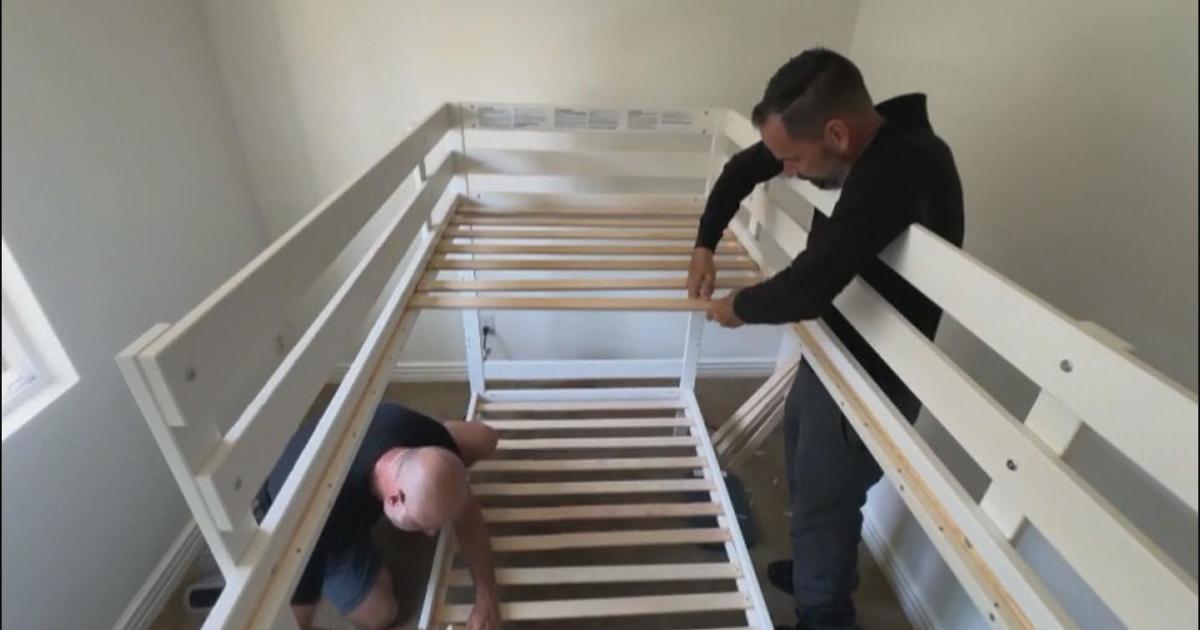US mortgage rates surged to highest level in 21 years
(CNN) -- US mortgage rates surged this week, rising to their highest level in 21 years.
The 30-year fixed-rate mortgage averaged 7.09% in the week ending August 17, up from 6.96% the week before, according to data from Freddie Mac released Thursday. A year ago, the 30-year fixed-rate was 5.13%.
Rates have been above 6.5% since the end of May and climbing higher since mid-July. The last time rates were over 7% was in November of last year when they hit 7.08%. This week's average rate is the highest the 30-year, fixed-rate mortgage has been since April 2002 when it was 7.13%.
Mortgage rates have spiked during the Federal Reserve's historic rate-hiking campaign sending home affordability to its lowest level in several decades. Buying a home is more expensive because of the added cost of financing the mortgage, and homeowners who previously locked in lower rates are reluctant to sell. The combination of low inventory and high costs has squeezed would-be homebuyers, sending home sales about 20% lower than a year ago.
"The economy continues to do better than expected and the 10-year Treasury yield has moved up, causing mortgage rates to climb," said Sam Khater, Freddie Mac's chief economist. "Demand has been impacted by affordability headwinds, but low inventory remains the root cause of stalling home sales."
The average mortgage rate is based on mortgage applications that Freddie Mac receives from thousands of lenders across the country. The survey includes only borrowers who put 20% down and have excellent credit.
Inflation concerns remain
The rising average rate for a 30-year, fixed rate loan is mirroring the trend of 10-year treasury yields, which recently hit their highest level since the summer of 2007.
Treasuries moved higher as investors reacted to the release of the Federal Reserve's meeting minutes on Wednesday, which said members are worried that inflation will linger longer than expected at an elevated level, said George Ratiu, Chief Economist at Keeping Current Matters, a real estate market insights and content company.
"Coming out of a three-year pandemic, the economy continues to expand, boosted by solid consumer spending and business investment," said Ratiu. "For most Americans, the economic growth means job security and better pay checks."
The downside however, he said, to the strong wage gains is that the Fed remains hawkish on the outlook for taming inflation this year.
"With the view of the late 1970s' twin inflation peaks firmly in its monetary lens, the central bank remains determined to bring price growth to the 2.0% target," he said. "Measures of core inflation are still north of 4.0%, which means that additional rate hikes are on the Fed's monetary agenda."
While the Fed does not set the interest rates that borrowers pay on mortgages directly, its actions influence them. Mortgage rates tend to track the yield on 10-year US Treasuries, which move based on a combination of anticipation about the Fed's actions, what the Fed actually does and investors' reactions. When Treasury yields go up, so do mortgage rates; when they go down, mortgage rates tend to follow.
"Despite still high prices and elevated interest rates, July's retail sales data showed consumer spending continues to increase solidly as demand is being boosted by high wage growth," said Jiayi Xu, an economist at Realtor.com.
While this strong economic data might cool worries about an imminent recession, it could give rise to concerns that interest rates might stay elevated for an extended period, she said.
Meanwhile, it is worth noting that the Fed is moving cautiously to ensure that the effects of earlier rate hikes are fully revealed.
"As a result, the Fed may opt to take another 'wait-and-see' strategy in its upcoming meeting, which may help potentially mitigate the recent upward trajectory of mortgage rates," Xu said.
Rates and home prices expected to stay elevated
With inflation still a concern for the Fed, home buyers can expect borrowing costs to stay elevated, said Ratiu.
The bottom line for home buyers is that it will continue to be difficult to find affordable homes as rising mortgage rates are tacked onto already elevated home prices.
This year home buyers have seen rates rise a whole percentage point from the lowest point of 2023, 6.09% in February, to this week's 7.09%. Compared to a year ago, rates are nearly 2 percentage points higher.
Today's mortgage rate is 196 basis points higher than a year ago when rates were 5.13%, which means that for the buyer of a median-priced home, the monthly mortgage payment is 17% higher, according to Ratiu.
More than 90% of homeowners with mortgages currently have a rate of 6% or lower, according to a recent Redfin study, meaning they are staying in their current home, not selling and trading up, which would come with higher borrowing costs. This is making the number of already built homes available to buy extraordinarily low — keeping prices elevated for those looking to buy.
A homeowner who bought a median-priced home with a 20% down payment in January 2022 with a 3.1% mortgage rate is paying about $1,300 a month. That same home at today's rate would mean a $2,300 monthly mortgage payment, excluding taxes and insurance, Ratiu said.
For current homeowners who decide to sell, high home prices can help ease the blow of higher mortgage rates. "It is not surprising that with equity near all-time high, over one-in-four buyers is paying all cash for their next home," Ratiu said.
But unlike existing homeowners who can leverage home equity – which is near all-time high – to reduce the size of mortgage loans, first-time home buyers are facing much more challenging market conditions.
Plus, with asking rents dipping for two consecutive months, according to Realtor.com, potential first-time home buyers may not feel the same urgency to expedite their home purchase as they did when rents were escalating at a double-digit pace.
"This may result in slower sales churn, but it also provides potential home shoppers with an extended timeframe to carefully consider crucial decisions during the home buying journey," said Xu.



